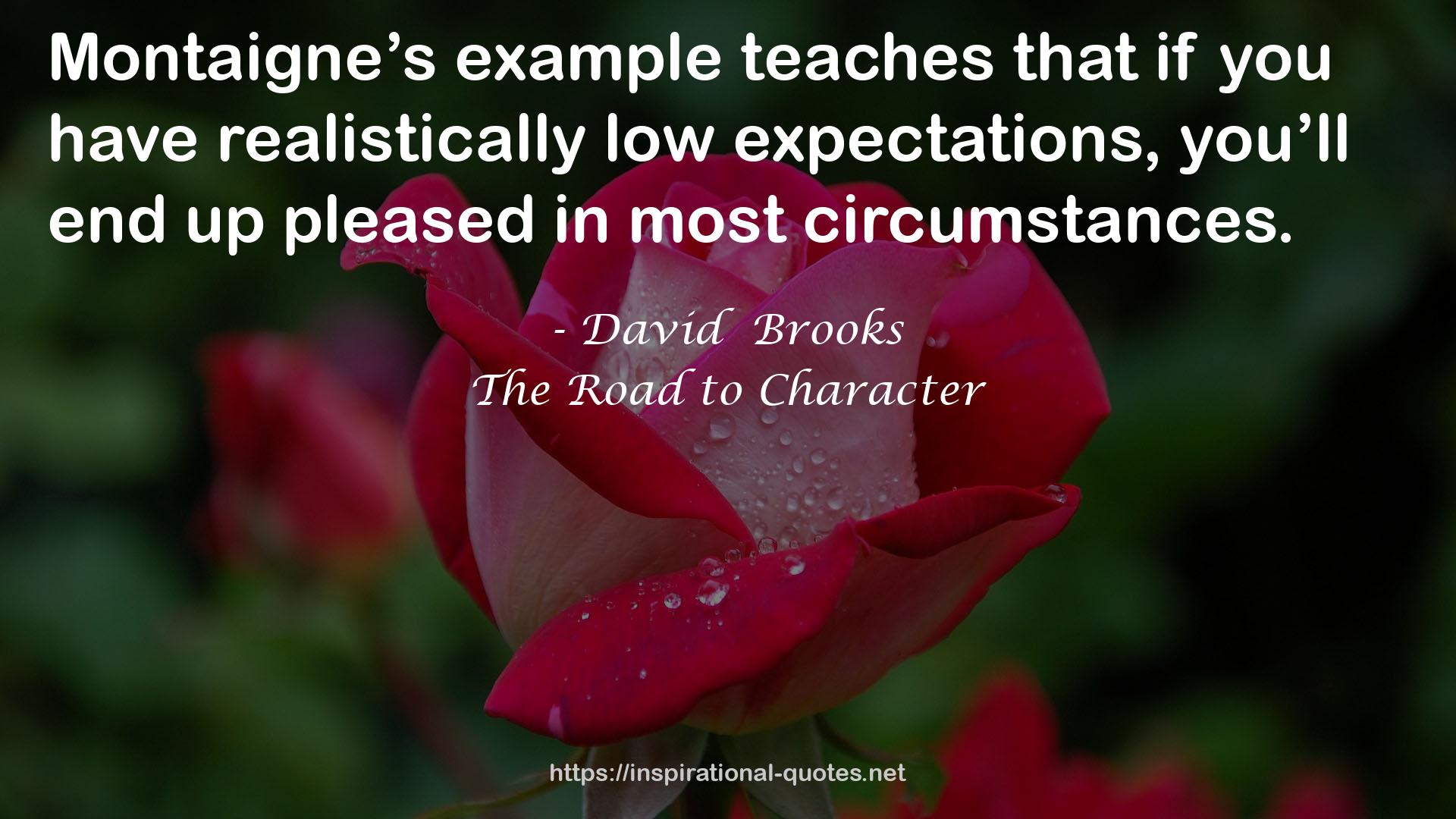64
" Social networking technology allows us to spend our time engaged in a hypercompetitive struggle for attention, for victories in the currency of “likes.” People are given more occasions to be self-promoters, to embrace the characteristics of celebrity, to manage their own image, to Snapchat out their selfies in ways that they hope will impress and please the world. This technology creates a culture in which people turn into little brand managers, using Facebook, Twitter, text messages, and Instagram to create a falsely upbeat, slightly overexuberant, external self that can be famous first in a small sphere and then, with luck, in a large one. The manager of this self measures success by the flow of responses it gets. The social media maven spends his or her time creating a self-caricature, a much happier and more photogenic version of real life. People subtly start comparing themselves to other people’s highlight reels, and of course they feel inferior. "
― David Brooks , The Road to Character
66
" Ralph Waldo Emerson would later observe that “Souls are not saved in bundles.”16 Johnson fervently believed in each individual’s mysterious complexity and inherent dignity. He was, through it all, a moralist, in the best sense of that term. He believed that most problems are moral problems. “The happiness of society depends on virtue,” he would write. For him, like other humanists of that age, the essential human act is the act of making strenuous moral decisions. He, like other humanists, believed that literature could be a serious force for moral improvement. Literature gives not only new information but new experiences. It can broaden the range of awareness and be an occasion for evaluation. Literature can also instruct through pleasure. Today many writers see literature and art only in aesthetic terms, but Johnson saw them as moral enterprises. He hoped to be counted among those writers who give “ardor to virtue and confidence to truth.” He added, “It is always a writer’s duty to make the world better.” As Fussell puts it, “Johnson, then, conceives of writing as something very like a Christian sacrament, defined in the Anglican catechism as ‘an outward and visible sign of an inward and spiritual grace given to us.’ ” Johnson lived in a world of hack writers, but Johnson did not allow himself to write badly—even though he wrote quickly and for money. Instead, he pursued the ideal of absolute literary honesty. “The first step to greatness is to be honest” was one of Johnson’s maxims. He had a low but sympathetic view of human nature. It was said in Greek times that Demosthenes was not a great orator despite his stammer; he was a great orator because he stammered. The deficiency became an incentive to perfect the associated skill. The hero becomes strongest at his weakest point. Johnson was a great moralist because of his deficiencies. He came to understand that he would never defeat them. He came to understand that his story would not be the sort of virtue-conquers-vice story people like to tell. It would be, at best, a virtue-learns-to-live-with-vice story. He wrote that he did not seek cures for his failings, but palliatives. This awareness of permanent struggle made him sympathetic to others’ failings. He was a moralist, but a tenderhearted one. "
― David Brooks , The Road to Character
76
" This popular ideology contends that the religious experience is tranquil and neatly ordered, tender and delicate; it is an enchanted stream for embittered souls and still waters for troubled spirits. The person “who comes in from the field, weary” (Gen. 25:29), from the battlefield and campaigns of life, from the secular domain which is filled with doubts and fears, contradictions and refutations, clings to religion as does a baby to its mother and finds in her lap “a shelter for his head, the nest of his forsaken prayers” and there is comforted for his disappointments and tribulations. This Rousseauian ideology left its stamp on the entire Romantic movement from the beginning of its growth until its final (tragic!) manifestations in the consciousness of contemporary man. Therefore, the representatives of religious communities are inclined to portray religion, in a wealth of colors that dazzle the eye, as a poetic Arcadia, a realm of simplicity, wholeness, and tranquillity. This ideology is intrinsically false and deceptive. That religious consciousness in man’s experience, which is most profound and most elevated, which penetrates to the very depths and ascends to the very heights, is not that simple and comfortable. On the contrary, it is exceptionally complex, rigorous, and tortuous. Where you find its complexity, there you find its greatness. The consciousness of homo religiosis flings bitter accusations against itself and immediately is filled with regret, judges its desires and yearnings with excessive severity, and at the same time steeps itself in them, casts derogatory aspersions on its own attributes, flails away at them, but also subjugates itself to them. It is in a condition of spiritual crisis, of psychic ascent and descent, of contradiction arising from affirmation and negation, self-abnegation and self-appreciation. Religion is not, at the outset, a refuge of grace and mercy for the despondent and desperate, an enchanted stream for crushed spirits, but a raging clamorous torrent of man’s consciousness with all its crises, pangs, and torments. "
― David Brooks , The Road to Character

